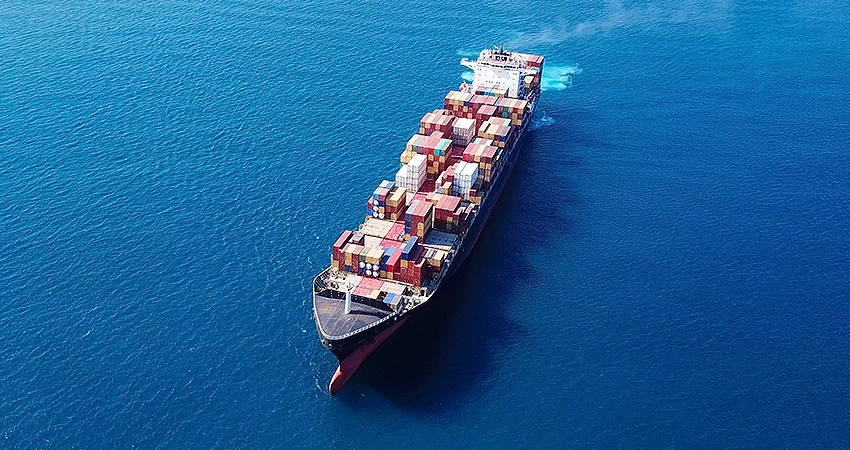A:
- AMS (Automated Manifest System): An electronic system used to submit cargo information to U.S. Customs before vessel arrival.
- AWB (Air Waybill): A document that serves as a receipt for goods and contract of carriage in air freight.
B:
- BAF (Bunker Adjustment Factor): A surcharge applied to freight rates to compensate for fluctuations in fuel prices.
- Bill of Lading (B/L): A legal document issued by a carrier to a shipper that details the type, quantity, and destination of goods.
C:
- CFS (Container Freight Station): A facility where LCL shipments are consolidated or deconsolidated.
- CIF (Cost, Insurance, and Freight): An Incoterm where the seller pays costs, insurance, and freight to bring goods to the port of destination.
D:
- Demurrage: Charges payable to the shipowner for delay in loading or unloading beyond the time allowed in the charter party.
- DWT (Deadweight Tonnage): The total weight a ship can carry, including cargo, fuel, fresh water, ballast water, provisions, passengers, and crew.
E:
- ETA (Estimated Time of Arrival): The expected date and time a ship will reach its destination.
- ETD (Estimated Time of Departure): The expected date and time a ship will leave its port of origin.
F:
- FCL (Full Container Load): A shipment that fills an entire container.
- FOB (Free on Board): An Incoterm indicating that the seller is responsible for goods until they are loaded onto the ship.
G:
- Gross Tonnage: A measure of a ship’s overall internal volume.
- GRI (General Rate Increase): A uniform increase in base freight rates applied by carriers.
H:
- Hague-Visby Rules: A set of international rules governing the carriage of goods by sea.
- Haulage: The transport of cargo by road.
I:
- Incoterms: Standardized terms used in international trade to define the responsibilities of buyers and sellers.
- Intermodal: Involving two or more modes of transportation in a single journey.
J:
- Jettison: The act of throwing goods overboard to lighten a ship’s load in an emergency.
- Just-in-Time (JIT): A logistics strategy aimed at reducing inventory costs by scheduling deliveries to arrive precisely when needed.
K:
- Knot: A unit of speed equal to one nautical mile per hour.
- K&R (Kidnap and Ransom) Insurance: Coverage that protects against financial losses due to kidnapping of crew or passengers.
L:
- LCL (Less than Container Load): A shipment that doesn’t fill an entire container and is grouped with other shipments.
- Lien: A legal claim on goods for unpaid charges or services.
M:
- Manifest: A document listing the cargo, passengers, and crew of a ship.
- Multimodal Transport: The movement of goods using two or more modes of transport under a single contract.
N:
- NVOCC (Non-Vessel Operating Common Carrier): A freight forwarder that issues its own bill of lading but doesn’t operate ships.
- Net Tonnage: A measure of a ship’s earning capacity, excluding crew spaces, engine rooms, etc.
O:
- On-carriage: Transportation of goods from the port of arrival to the final destination.
- Overland: Transport by land rather than sea or air.
P:
- Panamax: The maximum dimensions of a ship that can pass through the Panama Canal.
- Plimsoll Line: A marking on a ship’s hull that indicates the maximum depth to which the ship may be safely loaded.
Q:
- Quay: A platform lying alongside water where ships are loaded and unloaded.
- Quarantine: Isolation imposed on ships, persons, or goods to prevent the spread of disease or pests.
R:
- Reefer: A refrigerated container used for transporting temperature-sensitive cargo.
- RO/RO (Roll-on/Roll-off): A vessel designed to carry wheeled cargo that can be driven on and off the ship.
S:
- Shipper: The person or company who is usually the supplier or owner of commodities shipped.
- Stevedore: A person or company employed in the loading and unloading of ships.
T:
- TEU (Twenty-foot Equivalent Unit): A standard unit for describing a ship’s cargo carrying capacity.
- Transshipment: The transfer of goods from one carrier to another or from one ship to another.
U:
- UCP (Uniform Customs and Practice for Documentary Credits): A set of rules governing the use of letters of credit in international trade.
- ULCC (Ultra Large Crude Carrier): A very large tanker ship designed to transport huge quantities of crude oil.
V:
- Vessel: Any ship or craft designed for transportation on water.
- VLCC (Very Large Crude Carrier): A large tanker ship used to transport crude oil.
W:
- Waybill: A document issued by a carrier giving details and instructions relating to a shipment.
- Wharfage: A charge assessed by a pier or dock owner for handling incoming or outgoing cargo.
X:
- X-Press Service: An expedited shipping service offering faster transit times.
Y:
- Yard: An area where containers are temporarily stored or where cargo is loaded/unloaded.
- Yacht Transport: Specialized shipping service for recreational boats and yachts.
Z:
- Zone, Free Trade: A designated area where goods may be landed, stored, and shipped without payment of customs duties.
- Zone, Time: A geographical region where the same standard time is used.
